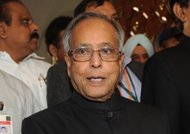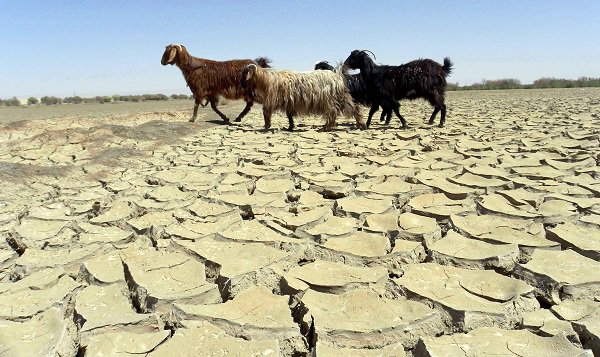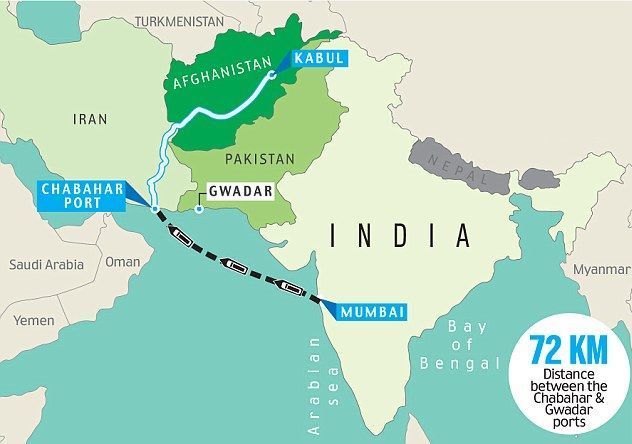India's finance minister appealed on Saturday to fractious government allies and a hostile opposition to cooperate "in the national interest" to restore the health of Asia's third-largest economy.
Publish dateSaturday 24 March 2012 - 18:41
Story Code : 38400
Pranab Mukherjee's call came as global ratings agencies and investment houses warned that India's weak public finances and political paralysis over reform measures were clouding the nation's financial prospects AFP reported.
Getting India's economy back on track "is a question of broad national interest that is staring us in the face," Mukherjee told the Federation of Indian Chambers of Commerce and Industry in a bluntly worded speech.
The 77-year-old minister said he was "committed to protecting the credibility" of plans in his budget, presented earlier this month, to plug a widening fiscal deficit and trim a ballooning subsidy bill.
But Mukherjee said cutting spending "will involve tough decisions that we will have to take collectively", referring to coalition and opposition members who have been obstructing economic reforms at a time of slowing economic growth.
Doubts have been mounting about India's ability to deliver on its fiscal pledges amid worsening relations between the embattled ruling Congress and regional parties, whose backing it needs to retain power.
The graft-tainted government of Premier Manmohan Singh has had a series of embarrassing policy flip-flops in recent months with coalition members allying with the opposition to stymie reforms.
Earlier in the week, the government scrapped plans to hike rail fares -- a move intended to raise funds to repair the antiquated and unsafe network -- underscoring its growing difficulties in implementing policy decisions.
The government has set a fiscal deficit target of 5.1 percent of gross domestic product for the next financial year -- less than this year's gaping 5.9 percent -- but still the widest among big emerging market nations.
The government's woes have been compounded by decelerating growth with expansion for the next year to March, 31, 2013, targeted at 7.6 percent. That is up from 6.9 percent seen this year, but far below eight-to nine-percent growth for much of the past decade.
Among the hard decisions the government must make is whether to raise subsidised fuel and fertiliser prices.
Analysts say such hikes are key to cutting the debilitating subsidy burden but the move would be unpopular among India's vast poor population and require political courage from lawmakers with elections due at the latest by 2014.
"The implementation risk is high ahead of federal parliamentary elections," commented Fitch ratings agency.
Mukherjee recalled "another crisis" in 1991 in which India's currency reserves sank so low it was on the brink of defaulting on foreign loans. But that event turned out to be a catalyst for sweeping changes which began the process of the country's economic liberalisation, he noted.
"Despite being a minority government, with the collective will of parliament, it was possible to lift the economy," he said. "If we could face the challenges in the 1990s, we should be able to face the challenges in 2012-13."
Getting India's economy back on track "is a question of broad national interest that is staring us in the face," Mukherjee told the Federation of Indian Chambers of Commerce and Industry in a bluntly worded speech.
The 77-year-old minister said he was "committed to protecting the credibility" of plans in his budget, presented earlier this month, to plug a widening fiscal deficit and trim a ballooning subsidy bill.
But Mukherjee said cutting spending "will involve tough decisions that we will have to take collectively", referring to coalition and opposition members who have been obstructing economic reforms at a time of slowing economic growth.
Doubts have been mounting about India's ability to deliver on its fiscal pledges amid worsening relations between the embattled ruling Congress and regional parties, whose backing it needs to retain power.
The graft-tainted government of Premier Manmohan Singh has had a series of embarrassing policy flip-flops in recent months with coalition members allying with the opposition to stymie reforms.
Earlier in the week, the government scrapped plans to hike rail fares -- a move intended to raise funds to repair the antiquated and unsafe network -- underscoring its growing difficulties in implementing policy decisions.
The government has set a fiscal deficit target of 5.1 percent of gross domestic product for the next financial year -- less than this year's gaping 5.9 percent -- but still the widest among big emerging market nations.
The government's woes have been compounded by decelerating growth with expansion for the next year to March, 31, 2013, targeted at 7.6 percent. That is up from 6.9 percent seen this year, but far below eight-to nine-percent growth for much of the past decade.
Among the hard decisions the government must make is whether to raise subsidised fuel and fertiliser prices.
Analysts say such hikes are key to cutting the debilitating subsidy burden but the move would be unpopular among India's vast poor population and require political courage from lawmakers with elections due at the latest by 2014.
"The implementation risk is high ahead of federal parliamentary elections," commented Fitch ratings agency.
Mukherjee recalled "another crisis" in 1991 in which India's currency reserves sank so low it was on the brink of defaulting on foreign loans. But that event turned out to be a catalyst for sweeping changes which began the process of the country's economic liberalisation, he noted.
"Despite being a minority government, with the collective will of parliament, it was possible to lift the economy," he said. "If we could face the challenges in the 1990s, we should be able to face the challenges in 2012-13."
Source : Afghan Voice Agency (AVA), Kabul
avapress.com/vdcgzt9w.ak97z4j5ra.html
Top hits
4












